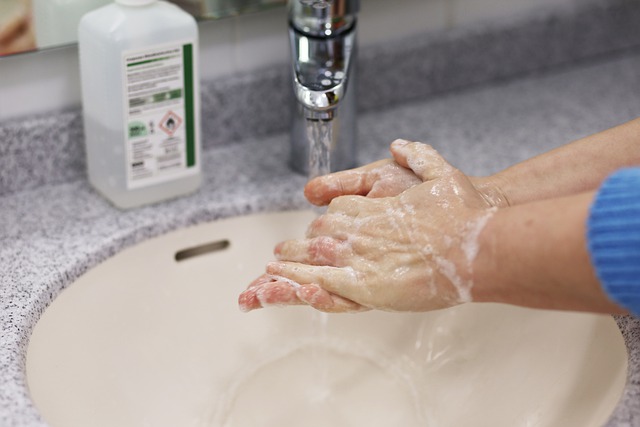Wear a mask always.
Keep social distance.
Wash your hands thoroughly with soap, or sanitiser.
All these instructions to avoid COVID-19, a solemn question in point today, are not new.
My good old granny was fastidious to a fault, so to speak, about washing hands with soap, as soon as I came home after playing outside. She would not allow me to go and talk to anyone having cough, cold, or fever, so as to prevent me from getting the infection.
So, in the ongoing, disquieting COVID-19 times that we live in, it’s ‘back to the future’ sort of a thing — personal hygiene.
Personal hygiene is cleanliness of the body — from head to toe, cleansing the body parts, viz., head, hair, ears, face, eyes, nose, neck, teeth, trunk, hands and feet, the private areas, and skin.
The purpose is to help us remain clean, healthy, and get rid of dirt and germs from the body.
Agreed that it helps to look smart, be appreciated by our friends and others. This also helps us to feel fresh and good, maintain optimal skin health, also muscle strength, and be free from infection and illness.
As Rose George, the British journalist, put it in perspective, “Rules governing defaecation, hygiene, and pollution exist in every culture at every period in history. It may, in fact, be the foundation of civilisation. What is toilet training, if not the first attempt to turn a child into an acceptable member of society?”
Or, as the timeless proverb quantifies, “Hygiene is two-thirds of health.”
Points To Ponder
- Always wear clean and dry clothes
- Do not share personal items, like soap, comb, tooth brush etc., with others
- Take bath every day with soap and water
- Pay special attention to skin folds, neck, groin, armpits, and genitals while bathing
- Don’t wear tight undergarments
- Take head bath, or hair wash, at least twice a week
- Apply natural oil to the hair daily, or after hair wash
- Comb the hair using a clean comb
- Clean comb once a week
- Don’t share your comb with anyone
- Chew food adequately before swallowing, so that the saliva mixes with the food adequately
- Do not eat in the same plate that others have used
- Trim your nails short and don’t bite them.
Personal health also relates to exercising, eating healthy, viz., more fruits and vegetables — and, washing them before consuming to kill viruses and bacteria that may reside on their surface.
Things To Do
- Wash your hands after coming home from outside, after visiting the toilet and after touching unclean objects, or surfaces
- Pay attention to clean the nails and finger beds as dirt and microorganisms may get accumulated there
- Always wear shoes that fit well, or comfortable footwear, while going out
- Don’t play with bare feet
- Do suitable exercises daily
- Try to play outdoor games
- Develop hobbies, like reading, drawing and painting
- Sleep well [6-7 hours]
- Good dental hygiene is more than pearly white teeth
- Caring for the teeth and gums is a smart way to prevent dental disease
- Kids’ hygiene can be considered as integral part of hygiene.
Kids should be taught about —
- Good and bad habits
- Handwashing and bathing
- Basics of germs and bacteria
- Nice and foul smell
- Grooming
- Fun with hygiene
- Most important. Parents and teachers, also others who advise them, should be role models.
All this sounds easy, but it is easier said than done. However, if we keep the simple, yet profound, tips enumerated in mind and follow them to the best extent possible we can stay safe and healthy.
Health education, imparted in a fun way, and also sensibly, in our cities, towns, and villages, can go a long way in keeping our nation healthy.
UNICEF Recommendations For COVID-19
Simple hygiene measures can help protect your family’s health and everyone else’s.
- Don’t touch your face
- Avoid touching your eyes, nose and mouth
- Don’t cough, or sneeze, into your hands
- Cover your mouth and nose with your elbow, or tissue, when coughing, or sneezing. Dispose of used tissue immediately
- Keep your distance
- Maintain a distance of at least 1 metre [3 feet] from people who are coughing, or sneezing
- Wash, wash, wash your hands. Yes, you’re hearing it everywhere, because it’s the best line of defence. Wash hands frequently with soap and water for at least 20-30 seconds
- An easy way to time it with your children is by singing the full happy birthday song, twice
- Make sure to wash hands after you blow your nose, sneeze into a tissue, use the restroom, when you leave and return to your home, before preparing, or eating food, applying make-up, handling contact lenses etc.,
- If using a hand sanitiser, ensure that it contains at least 60 per cent alcohol; ensure coverage on all parts of the hands and rub hands together for 20-30 seconds too until hands feel dry. If hands are visibly dirty, always wash hands with soap and water.
Did you know? Cold water and warm water are equally effective at killing germs and viruses — as long as you use soap and wash your hands the right way.

